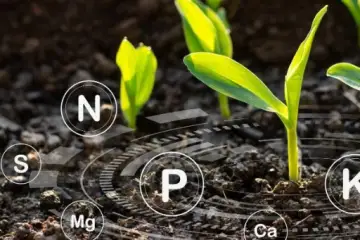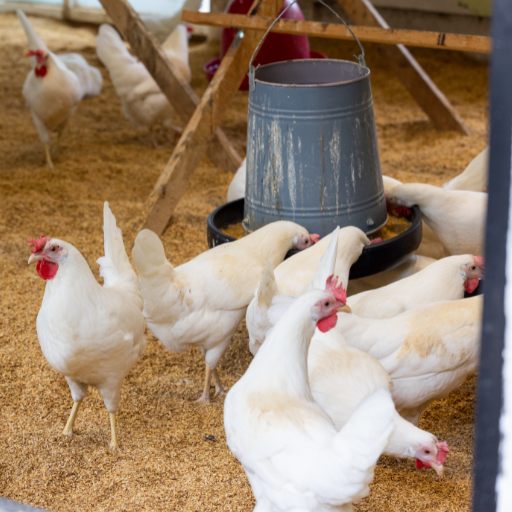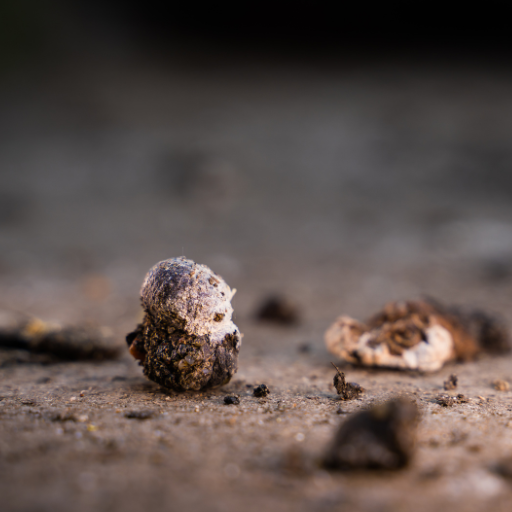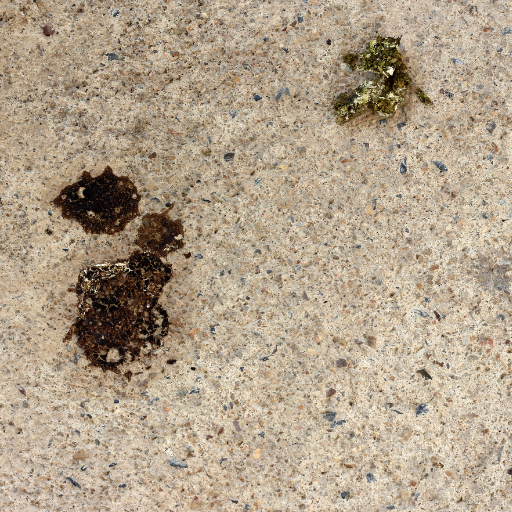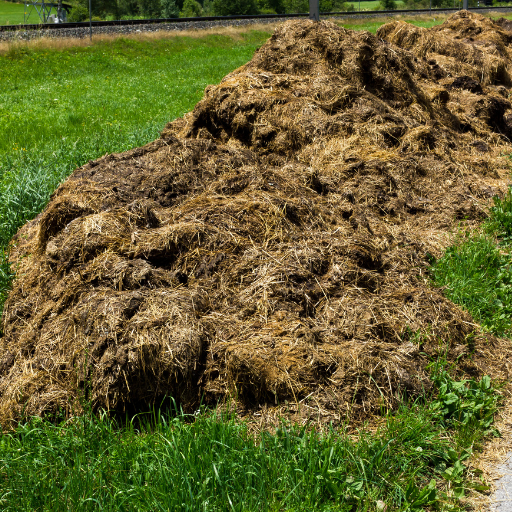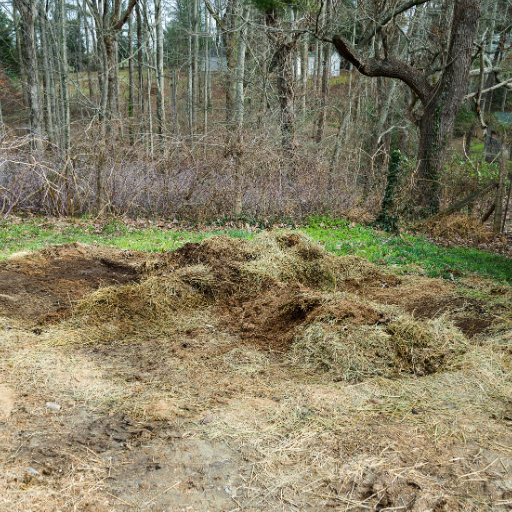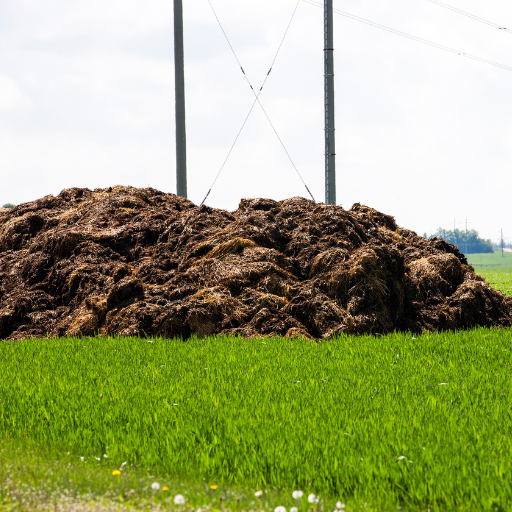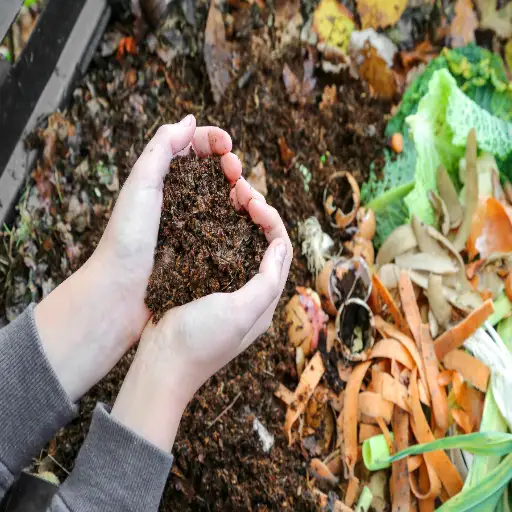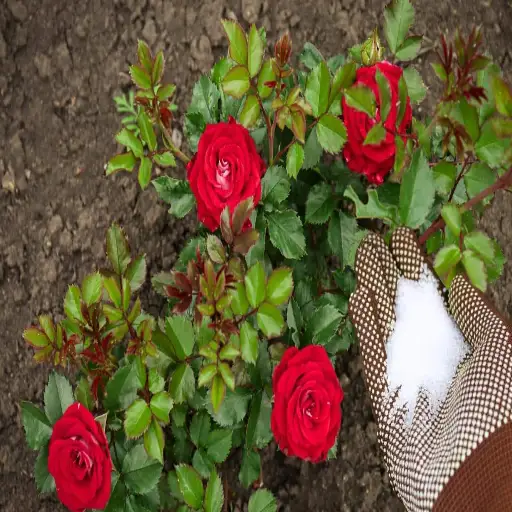To attain sustainable agriculture, it is possible to change chicken manure into organic fertilizers that are rich in nutrients, thus helping to solve the problems of waste management and soil enrichment. Chicken manure, usually seen as a byproduct, contains essential minerals such as nitrogen, phosphorous, and potassium, making it highly valuable. This process helps poultry farming reduce its environmental effect and advances towards circular economy principles through reusing waste to create useful agricultural inputs. This paper will discuss technical methods employed in converting chicken droppings into organic fertilizers taking account of biochemical processes and technologies associated with this environmentally friendly transformation. Additionally, we will study numerous advantages of this technique, such as its impact on soil fertility, crop productivity, and environmental appropriateness.
What are the Benefits of Using Chicken Manure in Your Garden?
Chicken dung is a perfect organic fertilizer for garden soil in various ways when it is properly composted and processed. To begin with, it adds crucial nutrients to the soils, such as nitrogen, promotes plant growth, and phosphorous, which is involved in root formation and flowering. Also, chicken manure has organic matter that improves the soil structure by improving the water-holding capacity and aeration of the soil. This leads to healthy plants and also supports good microbial activities, thus ensuring a balanced ecological system. Moreover, using chicken manure helps reduce reliance on synthetic fertilizers, which lessens the chemical burden on the environment while encouraging sustainable gardening practices.
Manure Contains Essential Nutrients
Chicken manure is rich in various essential nutrients for plant health and soil fertility. The major nutrients found in chicken manure are nitrogen (N), phosphorus (P), and potassium (K), usually at 1.5% N, 1.0-1.2% P₂O₅and 0.8%K₂O per dry matter basis, respectively. Other nutrients can vary depending upon diet, beddings used, or even storage conditions.
The presence of nitrogen is necessary since it speeds up plant growth by encouraging chlorophyll production which plays an important role in photosynthesis as well. Potassium improves plant vitality through disease resistance mechanisms and water regulation during droughts, enabling plants to withstand harsh environmental conditions. Phosphorous will improve root development and flowering, leading to high yields of crops and, hence, increasing quality.
Moreover, other elements like calcium, magnesium, sulfur, etc, enrich the abundance of chick’s humus. For example, calcium aids in structural integrity and cell wall development; magnesium is a central element within chlorophyll, while sulfur supports certain amino acids and vitamins.
Application-wise, chicken droppings must be properly composed so that ammonia volatilization and possible phytotoxicity are reduced. This usually reduces the moisture content to about 25-30% and stabilizes the organic matter, making it more suitable to be applied in gardening and agricultural practices. Pathogens & weed seeds are minimized while nutrient availability is improved by microbial breakdown of organic components through this process.
How Chicken Poop Improves Soil Structure
Chicken manure’s fertility enhances the soil’s structure by adding its organic matter, which helps bond the soil particles together and promotes the formation of aggregates. In chicken manure, according to the National Organic Program (NOP), there is organic matter that consists of partially decomposed plant and animal residues; these materials enhance soil porosity, allowing for aeration and water infiltration. Since increased water-holding capacity of soils leads to beneficial root moisture, keeping plants healthy.
Additionally, decomposition of chicken droppings during composting also stimulates microorganisms in the soil. Therefore, through this means humus, a stable organic compound formed upon decomposition that binds soil particles together, thus enhancing aggregation, which minimizes soil compaction necessary for root penetration as well as gas exchange. As per a study from the University of California, composted chicken manure-treated soils had higher stability and resistance against erosion than non-treated soils.
Chicken manure usually has a content of about 7% organic matter, technically speaking. The Journal of Environmental Quality said it was reported that between 5 and 10 tons per acre could increase soil carbon content by an average of 0.5%, with increases nearing this level having been observed in several studies. This rise in organic carbon enriches the soil’s fertility and CEC (cation exchange capacity), which is important for nutrient retention and plant availability. Consequently, chicken manure not only builds up the physical properties of soil but also supports sustainable agricultural practices.
Using Chicken Manure Safely to Avoid Plant Burn
Proper use of chicken manure requires proper attention to treatment rates and time. According to UGA Cooperative Extension, raw chicken manure contains high amounts of nitrogen that may cause “plant burn” if not well composted or given enough time to age before being applied. Therefore, it is best to have it composted for at least six months prior to its usage. During the composting process, the ammonium component, which is a form of nitrogen detrimental, particularly when present in larger proportions, is diminished.
Moreover, Ohio State University Extension advises using no more than four tons per acre of composted chicken manure to avoid an excess of nitrogen entering the field. This rate ensures that over time, nitrogen is released slowly, giving long-term supplies without overwhelming the plant.
Pennsylvania State University Extension stresses the need for soil testing as one way through which farmers can improve their understanding on how best they can utilize their farmyard manures. Frequent tests done on soils will determine nutrient levels, thus helping to adjust slurry application rates accordingly. For example, maintaining a pH range between 6 and 7 is very crucial in ensuring good uptake of nutrients by plants because abnormal pH values worsen effects associated with high N levels.
How to Apply Chicken Manure as Garden Fertilizer?
To effectively use chicken manure as a garden fertilizer, ensure proper composting to reduce harmful pathogens and nutrient concentrations. Broadcast the composted manure over the garden plot at a rate recommended by soil tests, typically about 20 pounds per 100 square feet. Till the manure into the top six to eight inches of soil to improve nutrient distribution and soil structure. Apply the manure during fallow or at least two weeks before sowing season to facilitate its full integration into the soil. Finally, follow up plant response and adjust future applications based on observed growth and soil test results.
Use of Fresh Chicken Manure
It is not ideal to directly apply fresh chicken manure in their gardens because it is highly rich in nitrogen nutrient contents and could contain harmful bacteria. This is because fresh application of manure results in an imbalance in nutrients, which causes plants to burn due to high nitrogen levels. You must first compost them to stabilize their nutrient content while eliminating harmful microorganisms. Nevertheless, if you have no choice but to use fresh ones, it would be better to apply sparingly during autumn and leave enough time for decomposition before crops sprout in spring. According to the USDA National Organic Program, ensure that fresh poultry litter must be applied no closer than 120 days before harvest for crops coming into direct contact with the ground and 90 days for other crops.
Aged Chicken Manure vs. Fresh Manure
Unlike fresh chicken litter, aged chicken waste has undergone a decomposition process that stabilizes its nutrient content, primarily comprising nitrogen, phosphorus, and potassium elements. Therefore, aged poultry litter is safer when used around plants because it greatly reduces the chances of root burn on plants and imbalance between nutrients supply, hence minimizing yield loss from crop fields due to issues such as excess nitrogen present in fresh fecal matter.
From a technical perspective, old bird droppings typically have an N-P-K ratio of approximately 1.1-0.8-0.5, while untamed ones could vary but mostly have a higher nitrogen composition. Moreover, old waste is less likely to contain harmful bacteria; as such it becomes the appropriate option when one grows edible crops in their gardens. However, high nitrogen content of fresh droppings could result in nutrient accumulation in the soil that can be hazardous to plants’ well-being and life within that medium. On the other hand, decomposition or aging of manure leads to improved soil structure and microbial activity without these adverse effects.
In conclusion, both aged and fresh chicken litter offer significant manurial value, though in most cases, the former is preferred owing to its safety, stability, and long-term benefits for soil health.
Steps on How to Apply Chicken Manure in Your Vegetable Garden Safely
- Composting: Before applying chicken manure, compost it for at least six months. This process entails piling the material and regularly turning it over so that there is even breakdown through added moisture. This will kill all pathogens and also make Nitrogen stable, hence its use in gardens.
- Time of Application: Composted poultry dung should be applied either during the autumn or early spring planting season. This way, integration with soil will occur naturally, and root burn will be avoided by ensuring enough time passes for complete decomposition before planting.
- Even Spreading: Ensure even distribution across your garden using about 1-2 inches of composted chicken waste per square yard. Do not concentrate it at one place since this may cause unbalancing of nutrients and damage plants cells inside us.
- Mixing with Soil: Use a tiller or a garden fork to work the composted manure into the top 6-8 inches of soil. This step ensures that the nutrients are well mixed in the soil, promoting healthy plant growth.
- Watering: Wet the area profusely after manure is added. Sufficient water helps spread nutrients throughout the soil and supports microbial activity.
- Crop Rotation Considerations: Consider crop rotation every year to guard against depletion of nutrients and reduce the possibility of soil-borne infections. Different crops need different amounts of nutrients, and changing crops keeps soil fertility up.
Can Fresh Chicken Manure Be Used Directly on Plants?
Generally, using fresh chicken manure directly on plants is not advisable. It has a high nitrogen content that can damage plants by causing root burn. Furthermore, it often contains harmful microbes that threaten human health when transferred to crops. Chicken droppings should be put aside for a few months to stabilize the nitrogen level and eliminate any pathogenic bacteria. The process ensures that the manure is safe for fertilizing because it encourages healthier plant growth without damaging or making them unwholesome.
Risks Implicit in Using Fresh Chicken Manure
Some serious risks attached to using fresh chicken manure in its raw form include: First, this chemical is more likely than not to cause root burn through its elevated ammonia levels leading even to plant death. Excessive nitrogen leads to an imbalance necessary for proper plant growth. Secondly, the case may be otherwise since new manure largely harbors dangerous pathogens such as salmonella and E.coli which become hazards if they come into contact with human food crops. When left unchecked, these microorganisms could contaminate food items, seriously ill people who consume such products. Besides, there are possibilities of having weed seeds in your garden due to fresh chicken droppings, which would grow alongside your crop, competing for nutrients and space, hence reducing their quality and quantity, respectively. Thorough composting of these wastes is important as this will minimize such risk, rendering chicken manure safer than normal.
How Fresh Chicken Manure Should Be Used Properly
Fresh chicken manure has to be well-composed before being used in gardens or farmlands. This begins with mixing the cow dung with carbonaceous materials like straw leaves or shavings in order strike a balance between their high nitrogen levels (Auburn University Extension, 2000).The heap should remain at 130oF-150oF for weeks to allow diseases, viruses and weed seeds to die off. You should periodically turn the pile to facilitate even breakdown of the materials and proper aeration. The composted manure will become dark and crumbly after several months indicating that it is ready for use. This composted material can be added directly to the soil in your garden as it supplies important nutrients vital for improving soil fertility without posing any risks associated with fresh manure.
Alternatives to Using Fresh Chicken Manure
One option besides fresh chicken manure is using commercial organic fertilizers. These are designed to provide a balanced supply of essential nutrients like nitrogen and phosphorous without the potential bacterial contamination from raw animal waste products. They exist as pellets, powders, or granules while having beneficial microorganisms that enhance soil conditions. For instance, bone meal releases phosphorus slowly, while blood meal is a fast nitrogen source.
Another reasonable step would be applying well-composted cow dung instead of fresh chicken manure (Auburn University Extension, 2000). This type of excreta contains less nitrogen than chicken droppings; hence, it reduces the chances of burning plants due to excess nitrogen in them. To achieve this cow dung has to be properly composted just like chicken droppings so that all pathogens and weed seeds are eliminated from it. Cow manure should be maintained at temperatures between 130-150 F by turning it regularly. The result is a dark, crumbly substance rich in organic materials and nutrients; good for enhancing soil health and productivity.”
Lastly, green manures or cover crops are a great option instead. For example, growing clover, alfalfa, or rye as cover crops can fix soil structure problems and increase soil nutrient levels while minimizing erosion. After being grown, these plants are turned over to the ground, decomposing and giving nutrients back to the soil. Leguminous green manure is effective since it fixes atmospheric nitrogen into the soil thus acting like a natural fertilizer. In your garden management plan, if you incorporate cover crops on an ongoing basis, you will reduce the amount of fresh dung needed or commercial fertilizers by a big margin.
How to Compost Chicken Manure for Organic Gardening?
Begin by gathering chicken manure and bedding from the coop to compost for organic gardening. Bedding like straw or wood shavings is typically used in this case to offer some carbon that can balance the large amount of nitrogen in the manure. On average, create a compost pile using about 30 parts carbon to one part nitrogen. This usually means that you have approximately two bedding materials for everyone part of chicken manure. Make sure your heap is moist without being waterlogged.
Turn it often, at least every few weeks, to aerate it and allow oxygen needed for microbial activities to take place. Another important thing is monitoring its temperature, aiming at between 130°F and 150°F so as to kill weed seeds and pathogens. Usually, composting lasts from six months to a year. When it’s dark, crumbly, and odorless, then it has reached a maturity stage, at which point you can incorporate it into your garden soil to improve fertility and plant growth.
Composting Chicken Manure
The procedure of making compost out of chicken poop entails many quite technical moves, which are specific steps. Pick up the dung along with the straw or wood shaving rich with carbon content materials. A good example could be having a mix consisting of roughly two sections of litter/manures plus one section of poultry droppings composed according to quantity ratio, which is approximately equals1:2.The moisture levels should be those that you would find in a wrung-out sponge not too wet or dry facilitating microbial activity.
Compost should be turned every few weeks to increase oxygenation which will help aerobic microorganisms digest the material better. It must attain temperatures between 130°F-150°F within its core space to kill any pathogen plus destroy all weed propagules present (Cohen et al., 2009). This heat phase may last for several days; hence, proper management needs enough time to turn it regularly. Dark in color, crumbly to touch and earthy smell characterize mature compost, ready for use in the garden. It, therefore, helps enrich soil with both macro- and micronutrients.
Composted Chicken Manure Benefits
Composted chicken manure has many agricultural benefits that significantly improve soil health and crop vitality. It is rich in organic nitrogen, which makes it a top-quality natural fertilizer. On average, chicken manure contains about 1.5% nitrogen, 1% phosphorus, and 0.5% potassium by weight, providing plants with a balanced diet of nutrients (Cohen et al., 2009). Furthermore, composted poultry droppings increase the organic matter content, improving the structure of soils, which positively impacts water-holding capacity and is indispensable for optimum plant growth.
Additionally, this process reduces the volume of organic waste, resulting in less environmental pollution. With proper composting methods considered during its preparation, the final product will contain little or no pathogens or weed seeds because high temperatures range from 130°F to150°F (Cohen et al., 2009). Last but not least, using this type of fertilizer allows slow release of essential nutrients thus minimizing leaching rates than synthetic fertilizers.This way, when you utilize chicken manure mixed up with humus as compost you can comfortably rest assured that your soil is rich in all types of minerals, including trace ones necessary for growing crops naturally without causing any harm but through application waste recycling concepts and improved bio-health properties.
Using Chicken Manure Compost in Different Soil Types
Using chicken manure compost effectively requires understanding its interaction with different soil types. Chicken manure compost significantly boosts both the nutrient-holding and moisture-holding capacity in sandy soils, which are characterized by large particle sizes and low nutrient retention capacity. Organic matter in manure binds sand particles together, resulting in good soil structure and less leaching of nutrients like Nitrogen and Phosphorus. Optimum results can be achieved by applying 1 to 2 inches of compost containing chicken manure into the top 6 inches of soil for sandy soils.
Chicken Manure compost is critical in improving aeration and drainage within clay soils, which have fine particles and are usually dense or poorly drained. The compost helps to break up clay particles creating larger pores for air and water movement that prevents waterlogging while providing better conditions for root growth. An average application rate for clay soils is about 2 to 3 inches of compost incorporated into the top 6-8 inches of soil.
Loamy soils have a balanced texture and nutrient profile, making them ideal for most plantings; they also stand to gain from the incorporation of poultry waste fertilizer. Loamy soils are already rich in carbon, but adding some more will enhance microbial activity that aids in nutrient cycling and disease suppression. Anywhere else on loamy soils, a modest addition would be one inch thick, containing chicken manure compost worked into the top six inches of soil, which has been found helpful in maintaining fertility levels at optimum levels.
How to Safely Handle and Store Chicken Manure?
Safe practices must be followed to ensure that chicken manure does not contaminate other compost and that this compost will be effective. You should always put on gloves and protective clothes when handling the manure because it can contain harmful pathogens. Similarly, you should use a mask for your nose to avoid dust and dirt that could enter the mouth.
To prevent runoff of nutrients due to rainfall, chicken manure should be stored in dry and covered area. The use of a strong air-tight container is useful in reducing smell as well as repelling insects. For one who wants to turn chicken droppings into manure, mixing carbon-rich materials such as straw or leaves with the dung would help balance its nitrogen content so that decomposition occurs fast enough. Aeration of the compost heap through turning it regularly also helps break down the materials faster, thereby reducing the chances of any pathogenic organisms growing inside it. These are measures that enable good quality manure and proper storage.
Storing Fresh Chicken Manure
Fresh chicken manure should be stored carefully, considering certain factors that may otherwise result in loss of nutrients and contamination of surroundings. From multiple sources’ perspectives, these parameters have been identified as Maintaining fine conditions for stabilizing the nutrient profile of the manure.
- Storage Conditions: The fresh chicken droppings must be kept in a dry place, because oversupplying moisture leads to excessive leaching away and runoff processes. Ideally, you should store your droppings undercover like a compost bin or heap where they do not feel rainwater directly falling onto them.
- Odour and Pest Control: To mitigate odors caused by fowl dung while repelling site pests, sealed sturdy containers are needed. Besides absorbing foul smells from the excreta, this layer enhances the decomposition process when added on top.
- Composting Procedures: The ratio of carbon to nitrogen (C:N) is crucial for the success of a composting process. Fresh chicken manure having high nitrogen content has to be mixed with carbonaceous materials to achieve an optimal C:N ratio of about 30:1. Frequently turning the pile of compost every one or two weeks ensures it gets enough air, which promotes good breakdown, thereby reducing the risk of harmful bacteria thriving there. Regularly turning the compost pile will aerate it, aiding in the breakdown process and reducing the risk of any harmful bacteria thriving.
- Temperature Monitoring: Compost temperatures ranging from 131°F to 160°F (55°C to 70°C) are maintained for several days to ensure pathogen and weed seed kill-off. This temperature range indicates active microbial activity, which is mandatory for safe, mature composting.
Safe Handling Practices for Chicken Manure
Chicken droppings must be handled correctly for safety reasons and efficacy. You should wear personal protective equipment such as gloves, masks, and boots throughout so that you do not touch it directly or inhale deadly dusts and pathogenetic organisms; hence after handling it, wash your hands with soap properly using running water to prevent fecal-oral pathways infections while transporting use spill free bags thus avoiding unnecessary leakage into our environment; this can be done by ensuring proper ventilation when conducting application of compost which eliminates ammonia fumes and reduce respiratory risks during stockpiles building up period through engrossing these procedures we can ensure that chicken droppings are handled safely while encouraging healthy productive decomposition.
Is Chicken Manure Fertilizer Better than Cow Manure?
In order to determine whether chicken manure is a better fertilizer than cow manure, it is important to compare them in terms of nutrient content, soil effects and ease of application. Chicken droppings usually have more nitrogen, phosphorus and potassium than cattle dung. These nutrients are usually denser in the case of chicken droppings, which makes them useful for the quick growth of plants and enriching the soil´s fertility. It should be composted well due to its high nitrogen content; this helps prevent root burn or nutrient imbalances.
On the other hand, cow waste does not have such nutrients but contributes in improving soil structure. The higher organic matter levels may increase aeration and water-holding capacity within the soil, hence acting as natural fertilizers. Moreover,cow dung tends to be less concentrated, thus reducing cases of over-fertilization and making direct application possible, albeit in larger quantities, unlike chicken droppings.
Ultimately, choosing between chicken or cow manure will depend on specific gardening requirements, soil conditions, and the type of crops being grown. Combining both types can, therefore, give farmers an ideal way to achieve balanced soil fertility and crop yields.
Comparing Nutrient Content
A comparison of chicken manure’s nutrition content against cow dung shows distinct disparities. According to researchers, chicken dung typically contains about 1.1% N (nitrogen),0.8% P(phosphorous), and K(potassium) at 0.5 %, while that from cows has values around 0.6%N, 0 .2%P, and K at 0.5%. These reflect higher levels of nitrogen and phosphorous, which are important in promoting vigorous plant growth and root development.
In addition,chicken feces often possess a slightly higher pH, between 6.5 and 8.0, which can help neutralize acidic soils. Cow droppings exhibit slightly lower acidity, ranging from 6.4 to 7.0, but they still stabilize soil pH levels.Both types of manure add organic matter that improves soil fertility and structure; however, chicken droppings’ higher level of nutrients might meet the immediate nutrient requirements.
However, it is important to note that elevated nutrient contents and high pH in chicken droppings necessitate proper composting to avoid phytotoxicity and ensure the availability of nutrients for plant uptake. Cow waste, on the other hand, has lower nutrition content and low pH, hence can be directly applied to enhance soil fertility, though large quantities are required.
Benefits of Chicken Manure Over Cow Manure
Chicken dropping has several unique advantages over cow dung, especially since it is richer and filled with essential mineral substances for amending soils. One major advantage is its high nitrogen value, which ranges from 1.1% up to 7%, compared with cow dung, which ranges between 0.5-2%. This high concentration of nitrogen boosts lush green growth and strong development. Additionally, chicken droppings normally contain about four times more phosphorus than cow waste(poultry- .8%:bovine -.2 %), vital for plant root formation and flowering stages.
Chicken manure is good for soil enrichment in terms of organic matter. This is because the higher percentage of organic matter allows beneficial microbial activity and increases the aeration of the soil as well as water retention. Additionally, chicken manure has a higher pH, ranging between 6.5 and 8.0, which is essential in neutralizing acidic soils, which in turn facilitates balanced nutrient uptake by crops. On the contrary, cow dung, with a pH range of 6.4 to 7.0, has slightly less effectiveness.
Chicken manure also has a rapid availability of nutrients, meaning it can almost instantly enrich soil fertility. Nevertheless, it’s necessary to use it correctly, often meaning composting to moderate nutrient burn or phytotoxicity risks. These benefits are justified by technical parameters such as:
- Nitrogen (N) Content:
-
- Chicken Manure: Typically ranges from 1.1% to 7%
- Cow Manure: Ranges between normally 0.5% and 2%
- Phosphorus (P) Content:
-
- Chicken Manure: Approximately equal to about 0.8%
- Cow Manure: Approximately equal to around 0.2%
- Potassium (K) Content:
-
- Chicken Manure: About half
- Cow Manure: About half
- pH Levels:
-
- Chicken Manure: From six point five up to eight point zero
- Cow Manure: From six point four till seven
Reference sources
- ScienceDirect
- Source: A Review on Treatment Processes of Chicken Manure
- Summary: This review article delves into various treatment processes for chicken manure, highlighting its potential to be transformed into value-added products such as compost. The study emphasizes the benefits and feasibility of composting chicken manure to produce high-quality organic fertilizer.
- Organic Fertilizer Machine
- Source: Feasibility Analysis on the Establishment of New Organic Fertilizer Production Plant
- Summary: This report presents a detailed analysis of the technical, environmental, and economic feasibility of setting up a new organic fertilizer production plant in the United States, particularly focusing on the utilization of chicken manure as a primary input material.
- NCBI
- Source: How Safe is Chicken Litter for Land Application as an Organic Fertilizer?
- Summary: This research article investigates the safety and environmental advantages of using chicken litter as an organic fertilizer. It discusses the economical and sustainable aspects of disposing of large quantities of poultry waste while improving soil fertility through land application.
Frequently Asked Questions (FAQs)
Q: Why is chicken manure a great option for use as fertilizer?
A: Chicken manure is a great option for use as fertilizer because it is an excellent source of organic nutrients. It provides a rich concentration of nitrogen, phosphorus, and potassium, which are essential for plant growth, making it a complete fertilizer.
Q: How can chicken manure be safely used in a chicken coop environment?
A: Chicken manure can be safely used in a chicken coop by ensuring it is properly composted before application. Fresh chicken manure may contain pathogens and can be harmful, but composting the manure reduces these risks, making it safe to use as a nutrient-rich soil amendment.
Q: What precautions should be taken when using fresh chicken manure in a lawn or garden?
A: When using fresh chicken manure in a lawn or garden, it is important to allow it to compost for several months. Fresh chicken manure may contain disease-causing organisms, and its high nitrogen content can burn plants. Proper composting ensures it is safe to use and provides maximum benefits as an organic material.
Q: What are the benefits of using industrially dried chicken manure fertilizer?
A: Industrially dried chicken manure fertilizer is beneficial because it has been processed to reduce pathogens and weed seeds. Additionally, the drying process concentrates the nutrients, making it a highly effective organic fertilizer for lawns and gardens.
Q: Can chicken manure be used as a complete fertilizer for all types of plants?
A: Yes, chicken manure can be used as a complete fertilizer for most types of plants. Chicken manure is an excellent source of organic nutrients that supports plant growth and soil health by adding beneficial organic matter.
Q: How often should chicken manure be applied to a lawn or garden?
A: Chicken manure should be applied to a lawn or garden once or twice a year, depending on the nutrient needs and soil conditions. Over-application should be avoided as the high nitrogen content in chicken manure can burn plants if applied excessively.
Q: Is it safe to use chicken manure in vegetable gardens?
A: Yes, it is safe to use chicken manure in vegetable gardens if it is well-composted. Composting the manure ensures harmful pathogens are reduced and the nutrients are more readily available to the plants, making it a safe and effective soil amendment.
Q: What is the difference in nutrient concentration between chicken manure and cow manure?
A: Chicken manure generally has a higher concentration of nitrogen, phosphorus, and potassium compared to cow manure. This makes chicken manure a richer fertilizer, providing more essential nutrients for plant growth.
Q: How is industrially dried chicken manure fertilizer produced?
A: Industrially dried chicken manure fertilizer is produced by heating the poultry manure to remove excess moisture and kill pathogens and weed seeds. This process results in a nutrient-dense, safe-to-use organic fertilizer for agricultural applications.
Q: How does chicken manure promote soil health?
A: Chicken manure promotes soil health by adding organic matter, which improves soil structure, aeration, and water retention. It also provides essential nutrients that enhance the fertility of the soil, ensuring healthier plant growth.


